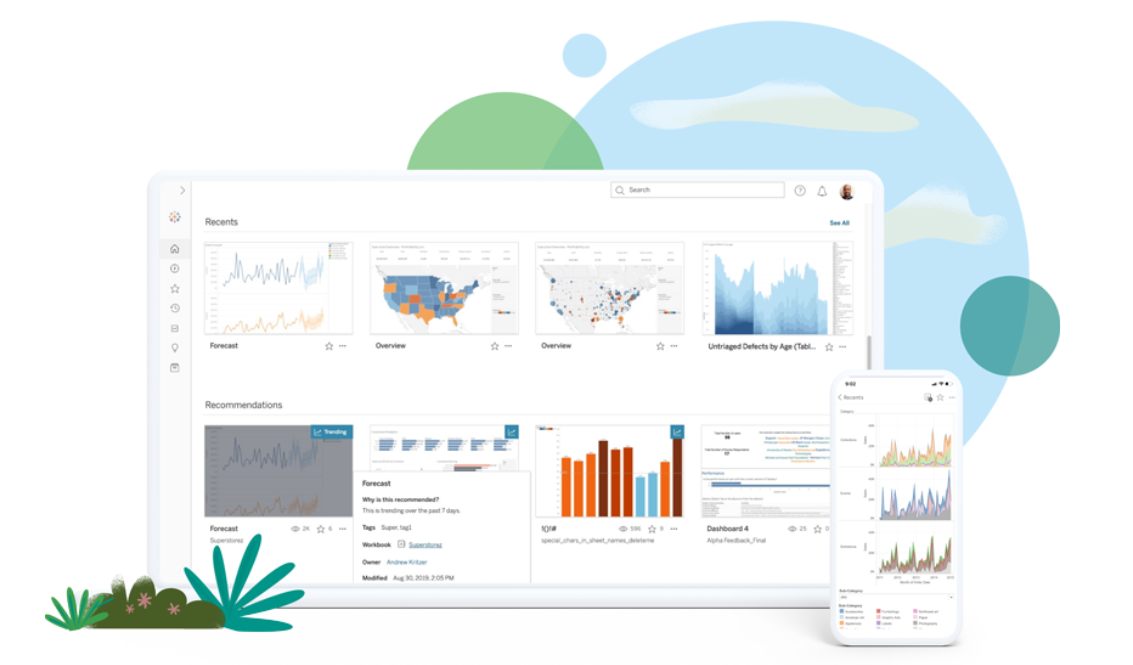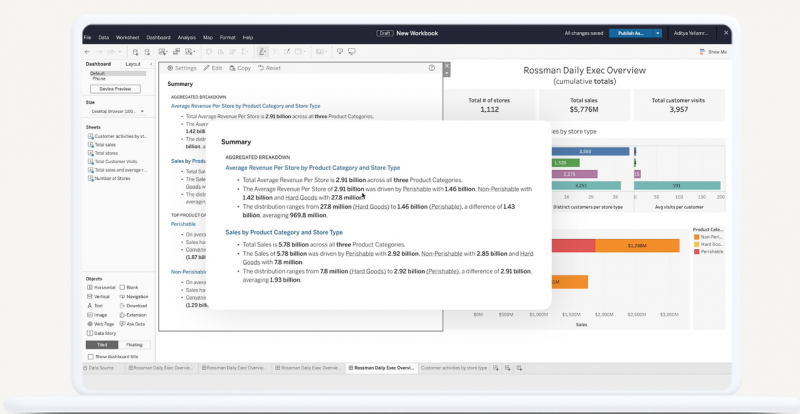 BIG DATA
BIG DATA
 BIG DATA
BIG DATA
 BIG DATA
BIG DATA
Tableau Software LLC took the wraps off a new edition of its cloud-based data analytics and visualization platform today at its Tableau Conference.
The company also previewed some upcoming capabilities that will arrive on Tableau Cloud later this year, and it talked about how it’s working to integrate its platform with the cloud applications of its parent firm Salesforce.com Inc.
The new features set to arrive in Tableau Cloud later this year include automated, artificial intelligence-powered “Data Stories” and predictive data modeling functionality that’s based on Salesforce’s Einstein tools.
Tableau Cloud is a rebranded version of the Tableau Online platform. At the event, Tableau Chief Executive Mark Nelson told media in a press conference that the managed software-as-a-service offering will be improved in various ways, with more analytical tools, better governance, smarter management capabilities, enhanced security and new, easier ways to share data.
“There has never been a more critical time for everyone, everywhere to see and understand data,” Nelson said at the event.
Nelson took over the top job at Tableau, replacing his predecessor Adam Selipsky, who left the company to take over the role of CEO at Amazon Web Services Inc. Tableau was acquired by Salesforce for $15.7 billion back in 2019, when Selipsky was still around.
Since Nelson has taken over, Tableau has seen increased demand for its cloud-based data analytics capabilities. At the press conference he revealed that about 70% of the company’s new customers are selecting the fully managed Tableau Cloud offering ahead of hybrid or on-premises software deployments.
“Cloud is the fastest way to make data work and cloud is the future of analytics,” Nelson added.
No doubt that explains why Tableau Cloud will also get lots of new capabilities first. Building on Tableau’s acquisition of a startup called Narrative Science last year, Data Stories gives users a way to build visual explanations out of Tableau’s dashboards using natural language commands. So to create a data story, the user simply drags and drops the desired dataset and then uses a set of customizations to format the information into a way that it can easily be consumed. The idea is that anyone will be able to do this, Tableau said, thereby increasing the number of people who can work with data.

There’s also a new Model Builder tool arriving soon that will let users build, collaborate on and deploy predictive AI models, plus a new Text Clustering tool for extracting keywords from large text fields. Finally, Tableau has added a Bias Detection tool for existing AI models.
As for its integration work with Salesforce, it has led to a new feature called Einstein Discovery, which provides users with predictions and recommendations based on the data they’re working with, Tableau said.
“By harnessing these insights, even beginners can see beyond the what of their data and understand the why,” Nelson explained. “You can see what could happen in the future, and what you should do about it.”
Finally, there were some important updates around governance and management. The company explained that the new management capabilities enable enterprise administrators to manage their own encryption keys and access activity logs that track how the software is being used by different people across their organization. It’s also adding admin insights around dataset usage, license adoption and visualization load times.
The rebranded Tableau Cloud has been launched today, but users will have to wait until later in the year for the Data Stories and Model Builder features to arrive.
Support our mission to keep content open and free by engaging with theCUBE community. Join theCUBE’s Alumni Trust Network, where technology leaders connect, share intelligence and create opportunities.
Founded by tech visionaries John Furrier and Dave Vellante, SiliconANGLE Media has built a dynamic ecosystem of industry-leading digital media brands that reach 15+ million elite tech professionals. Our new proprietary theCUBE AI Video Cloud is breaking ground in audience interaction, leveraging theCUBEai.com neural network to help technology companies make data-driven decisions and stay at the forefront of industry conversations.